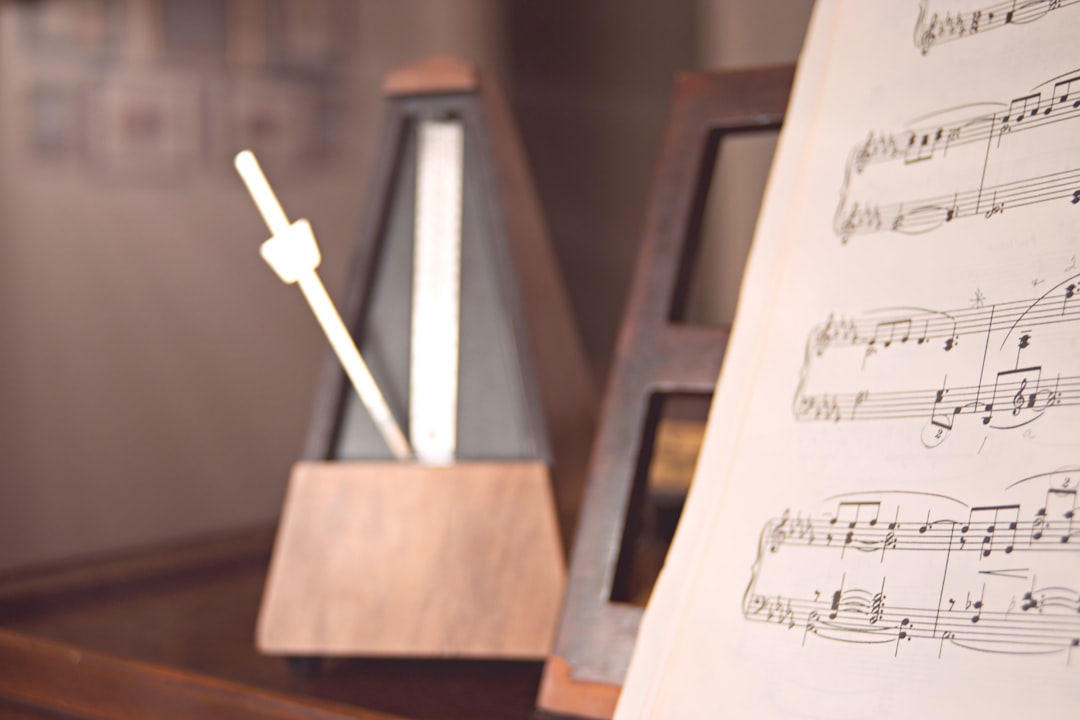7 Traits of Amazing Music Teachers

There are so many stories out there about music teachers changing their students' lives for the better. I've also heard stories about kids giving up music because they didn't like their teacher. These are, in my opinion, the traits that define a truly great teacher that your child will stick with, and be inspired by...
- They prioritize positive experiences
What's the point of learning every scale perfectly and acing your practice calendar if you're just going to quit after a year? A good teacher finds ways to teach their students what they need to know without scaring them away from music forever.
This does not mean coddling. Music students obviously need guidance, and sometimes tough love. Many students are so driven in music, that their teacher can challenge them endlessly with nothing but positive outcomes. But these students are the exception.
Most young music students need to be guided carefully in order to keep a positive relationship with music. A good teacher can sense what will be best for their student, and find the perfect balance to keep them challenged, but still having fun.
- They don't push too hard... And sometimes they do
Depending on the student, pushing them too hard and not pushing them hard enough can be equally detrimental to the student's learning. When a student doesn't practice, the teacher has many options. They can shrug, they can laugh, they can scold, or they can punish. It's very important for the teacher to find not only the balance but to find the right answer for the individual student. But every student is going through their own musical journey, so when a teacher thinks they've found the right approach for a specific student, they still have to stay on their toes. Each student goes through different phases in their learning and will need something different at different times. Music teachers must pay attention to the changes that their students are going through in their learning, and in their lives. This is especially true for children and teenagers since different ages bring about different challenges.
- They don't assume.
I've heard parents complain that their previous music teacher was too intense, saying "it's not like my child is going to be a concert pianist or something" ... I get that. But as a teacher, I also never assume that a student doesn't have grandiose visions for their music. If they do, I believe a good teacher should be there to guide the student in accomplishing their goals and realizing their dreams. If they don't, a good teacher will bring music into their student's life in a way that will stick, even if that doesn't mean a career in music.
If the student is showing a high level of ambition and passion for music, a good teacher will start by trying to understand what the student's goals are. They then should start a dialogue with the student about what it would take to accomplish those goals. If a teacher really cares, they will dig a little deeper and try to understand why their student has these goals in the first place - is it parental pressure? popularity at school? or are they really dedicated to the art for healthy reasons, willing to make the necessary sacrifices? If the teacher feels like the student really has a good foundation for serious study, they should be there to not only support the student, but to push them so that they can accomplish their goals.
On the other hand, a good teacher can identify when the student doesn't have a passion that goes beyond a hobby, and they allow lessons to take on a different purpose - to educate the student and help them develop and maintain a positive relationship with music, which if done right can stay with the student for the rest of their lives.
- They are goal-setters
The most important element that a music teacher can focus on in their lessons is goal setting. Without goals, music lessons would be... nothing.
As a music teacher, I always talk about practicing in "little chuncks" - finding a spot in the music that the student is having trouble with and breaking it down into 4 measure, 2 measure, or even 1 measure chunks. I often have my students play the same measure 10 times in a row. They groan, I say "you can do it!" and we count down until they've played it 10 times, and then we celebrate that they can play that measure perfectly now and it only took a minute and a half! Then maybe we'll put 2 chunks together, playing 2 measures at a time, then 4, then 8... This is how music lessons as a whole can go - focusing on one measure, one section, one song, one semester, one year. With music, goal setting is complicated.
A good teacher can juggle these many different levels of goals with each student, having long-term goals, shorter-term goals, goals within songs. This is why I always insist that every student keeps a notebook where we can record every assignment, goal, and some sort of practice log.
When it comes to practice goals, different techniques can be used for different ages and personalities. Young students often excel with practice calendars where they can put a sticker in each day that they practice. Older students might do the same, but writing the number of minutes they practiced each day. Older students often do well keeping a detailed practice log where they take notes on what they accomplished each day, how long it took, and how they felt about it. This technique doesn't work well with everyone, which is why a good teacher is in tune with what kind of learning style the student has before forcing them into a technique that doesn't work well for them.
Performances are a very important part of setting music goals. When a student has a performance coming up, it requires them to learn their material much better than if they were just going through songs. I always ask my students to memorize their music for recitals as many teachers do. Getting a song to the point of memorization is one thing, but I always also tell my students that they need to get their songs "performance-ready" which means that they can play it in their sleep. Recitals and concerts not only force students to really work hard on their repertoire but also give them the experience of performing under pressure. Many first-time recital participants are surprised at how hard it is to play their song when their hands are shaking from nervousness - but then the next year, they understand why they need to be able to play it in their sleep!
Long-term goals can be a really rewarding subject for music teachers. Whether that means becoming a great pianist, getting into music school, or preparing for something big like a performance or recording, long-term goal setting can really propel a music student into making leaps and bounds in their artistry.
- They are great role-models
Something that I witness a lot is music students who want to be just like their teachers. This happens with 5-year-old piano students who want to play as fast as their teacher as well as college students who are inspired by their professor's career. Good music teachers take that responsibility seriously. This means not only showing their students how to accomplish their goals in a healthy way, but also being a good role model in general. Displaying a positive attitude and good intentions are just as important as having a good work ethic. Music is an artistic and deeply personal endeavor, and therefore must be approached carefully.
- They focus on healthy habits
Healthy habits are important in every avenue, but music study can bring about some interesting challenges. On most instruments, students must be careful to not practice in such a way that they can hurt themselves. The number of guitar and bass players that end up with tendonitis (and singers who end up with nodes) would surprise you. This is something that can be easily avoided if the student learns to practice the 'correct' way - this is one of the many reasons that having a good music teacher is important.
Besides physical health, music students have to keep themselves mentally healthy. Finding a practice routine that is reasonable is one way to prevent burn-out. Having a support system to be there for the student when they have a bad audition or performance can prevent the negative feelings that can build up for young musicians. A good music teacher is there to make sure that their student is getting what they need emotionally.
- They listen
These days, kids are going through things that we adults will never understand. Increased academic pressure, more extracurricular activities than ever, growing up in the age of social media, and who knows what else. A good teacher not only listens for signs of stress but is also there to lend an ear if their student needs guidance. This means understanding when a student is frustrated with themselves for not understanding the assignment, and knowing how to tell the difference between that and a student who's trying to get away with an excuse.
Finding a teacher that can be all of these things can make music lessons an incredible experience and maybe even change the student's life for the better. Hats off to all the music teachers out there that are sharing the joy of music with your students - keep doing what you're doing!



